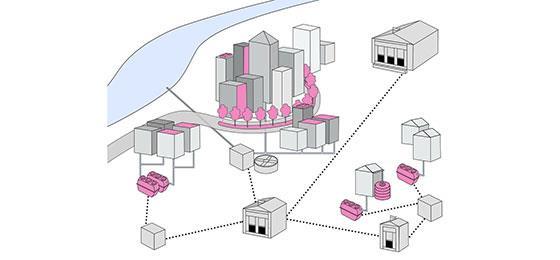Policy instrument mixes for modular water infrastructure
12.03.2020
Integrating modular technologies such as local treatment or purification of grey water or rainwater into existing water infrastructures creates hybrid systems that are more flexible and resilient than conventional infrastructures. Even though these advantages are readily available, modular technology is as yet very rarely used in OECD countries.
One explanation is lack of experience and the resulting uncertainty about how to select and apply policy instruments to manage such systems.
With this in mind, researchers working on NRP 73 at ETH Zurich and Eawag investigated 17 case studies in different OECD countries where modular technologies have already been integrated into centralised water infrastructures and are in operation. The results show that three combinations of policy instrument are particularly beneficial.
Combinations of policy instruments that encourage the use of modular technologies within hybrid water systems
- Regulatory instruments + information instruments + participation
- Regulatory instruments + economic instruments + information instruments + user responsibility
- Economic instruments + information instruments + user responsibility + participation
The importance of regulatory instruments such as laws and ordinances is hardly surprising, as is the growing significance of participation and user responsibility. Adopting participatory measures and assigning responsibilities provide a way of involving the various stakeholders more closely. Although it comes as a surprise, the importance of information campaigns confirms the key role played by spreading information in the context of new technologies.
An article entitled "Policy instrument mixes for operating modular technology within hybrid water systems" authored by the “Challenges of modular water infrastructure systems” project has been published in the journal “Environmental Science and Policy”. We will be happy to provide a PDF of the article on request.
